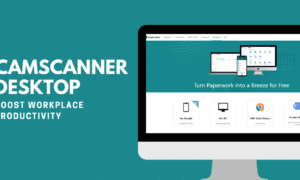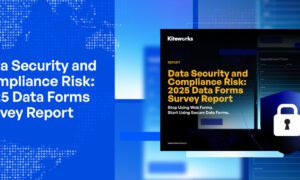Did you know that 60% of companies have experienced data breaches through unsecured messaging platforms? While chat tools streamline workplace communication, without proper archiving protocols, every message becomes a potential security vulnerability. As instant messaging becomes central to business operations, the gap between convenience and compliance grows wider. Understanding how chat archiving bridges this divide isn’t just prudent—it’s essential for your organization’s digital resilience.
For organizations that rely on messaging platforms for internal and external communication, the ability to archive WhatsApp messages securely is becoming increasingly vital. Whether for compliance purposes, legal protection, or operational continuity, businesses must ensure their chat records remain accessible, searchable, and protected against tampering. Without a structured approach, critical conversations can be lost, creating vulnerabilities that put companies at risk of regulatory non-compliance and security breaches.
Understanding Chat Archiving: What and Why?
Chat archiving systematically captures, indexes, and securely stores messages exchanged through workplace instant messaging platforms for future retrieval and analysis. This practice is critical for maintaining thorough records of organizational communications, particularly for compliance verification, dispute resolution, and knowledge preservation. Implementing robust chat archiving protocols addresses critical vulnerabilities, including regulatory non-compliance, legal exposure, and the loss of valuable institutional knowledge.
Defining Chat Archiving
Many organizations mistakenly rely solely on the built-in message retention features of their communication platforms, but true chat archiving requires a more structured approach.
Comprehensive archiving involves preserving complete message threads with metadata, and ensuring data retrieval during audits or investigations is efficient and contextual. Unlike basic retention, robust archiving tools capture not only message content but also timestamps, sender information, and attachments, maintaining the integrity of conversations.
Your archiving strategies should address compliance challenges across various regulatory frameworks. Implementing structured protocols enhances searchability, ensures tamper-proof records, and supports defensible deletion policies.
The Need for Chat Archiving
As workplace communication increasingly shifts to digital platforms, regulatory scrutiny has intensified. Organizations must implement chat archiving systems to:
- Preserve communication records for compliance audits and legal discovery.
- Protect against regulatory penalties and litigation risks.
- Mitigate security vulnerabilities associated with unarchived communications.
- Retain institutional knowledge for operational continuity.
Beyond compliance, managing data lifecycles through archiving improves security posture. Unarchived chats create potential breach points, exposing sensitive company information. Ensuring accessibility to archived content enhances operational efficiency, but seamless integration across various platforms remains a challenge many organizations must overcome.
Enhancing Workplace Communication Through Archiving
Chat archiving is more than a compliance tool—it transforms casual exchanges into valuable institutional knowledge. Employees communicate more deliberately when they know their discussions are preserved, reducing miscommunication and fostering accountability. Additionally, rapid access to archived messages allows teams to retrieve critical information within seconds rather than hours, minimizing disruptions.
Facilitating Knowledge Sharing
Without structured chat archiving, valuable insights exchanged in daily conversations disappear as soon as the chat window closes. Archiving preserves decision-making discussions, technical solutions, and process-related insights, creating a permanent, searchable knowledge repository.
This benefits organizations by:
- Enhancing onboarding efficiency—new employees gain instant access to historical conversations.
- Supporting training with real-world examples extracted from previous discussions.
- Preventing knowledge silos by ensuring information is not lost when employees leave.
By maintaining a continuous thread of institutional memory, chat archiving reduces reliance on individual knowledge, safeguarding against disruptions caused by personnel turnover.
Improving Communication Accountability
Archiving workplace conversations fosters accountability by maintaining verifiable records of digital exchanges. Employees naturally communicate with greater clarity and professionalism when they know their messages are archived, reducing ambiguity and misinterpretation.
This transparency provides:
- Objective evidence in workplace disputes or regulatory audits.
- Clear records of decision-making processes.
- A compliance framework that reassures both employees and stakeholders.
By implementing robust chat archiving, organizations cultivate a culture of responsible digital communication while ensuring adherence to legal and ethical standards.
Enabling Efficient Information Retrieval
Modern archiving systems use indexing algorithms to transform chat data into structured, searchable knowledge assets. Employees can retrieve specific conversations, attachments, or compliance records instantly using:
- Advanced search filters based on date, participant, or keyword.
- Metadata tagging for precise organization and retrieval.
- AI-driven tools that identify relevant discussions in large data sets.
Fast, accurate information retrieval is valuable for responding to compliance inquiries, reconstructing decision trails, or locating key customer interactions. By implementing robust search functionality, organizations unlock efficiency gains that improve compliance management and operational decision-making.
Strengthening Data Security with Chat Archiving
Chat environments present substantial security risks. Without robust archiving protocols, sensitive information is susceptible to breaches, unauthorized access, and compliance violations. Implementing a secure chat archiving system strengthens data protection while ensuring regulatory adherence.
Protecting Sensitive Information
Unarchived chat environments introduce three major security risks:
- Data exposure – Unsecured chats may contain proprietary business strategies, client information, or financial data.
- Unauthorized access – Without encryption and role-based permissions, internal data can be compromised.
- Lack of monitoring – Security teams cannot detect suspicious activity without proper logging mechanisms.
Implementing structured archiving solutions mitigates these risks through:
- Encrypted storage of archived conversations.
- Granular access controls restricting visibility based on security clearance.
- Automated monitoring tools that flag unusual communication patterns.
A systematic approach to chat archiving transforms disorganized conversations into secured, regulated knowledge repositories that support compliance initiatives and internal security policies.
Ensuring Compliance with Data Retention Policies
Regulatory frameworks such as GDPR, HIPAA, and FINRA mandate specific data retention requirements. Organizations must systematically archive workplace communications to:
- Ensure compliance with retention mandates.
- Avoid regulatory fines and reputational damage.
- Implement automated deletion policies for data minimization.
Effective archiving policies balance compliance with operational needs, preventing excessive data accumulation while ensuring essential records remain accessible.
Mitigating Insider Threats
While external cyber threats dominate security discussions, insider threats pose equally significant risks. Chat archiving helps mitigate these risks by monitoring communication trends and identifying potential security violations.
By leveraging archived data, organizations can:
- Detect unauthorized sharing of confidential information.
- Identify patterns of non-compliant behavior.
- Establish behavioral baselines to recognize deviations that indicate potential risks.
A proactive approach to monitoring archived chat data helps organizations prevent breaches before they escalate into full-blown security incidents.
Conclusion
Chat archiving is not merely a regulatory necessity—it is a foundational element of digital security, accountability, and operational continuity. By implementing structured archiving solutions, organizations safeguard sensitive communications, enhance knowledge retention, and reinforce compliance with evolving regulatory landscapes. A proactive approach to archiving transforms workplace communication from a potential liability into a strategic advantage.

































